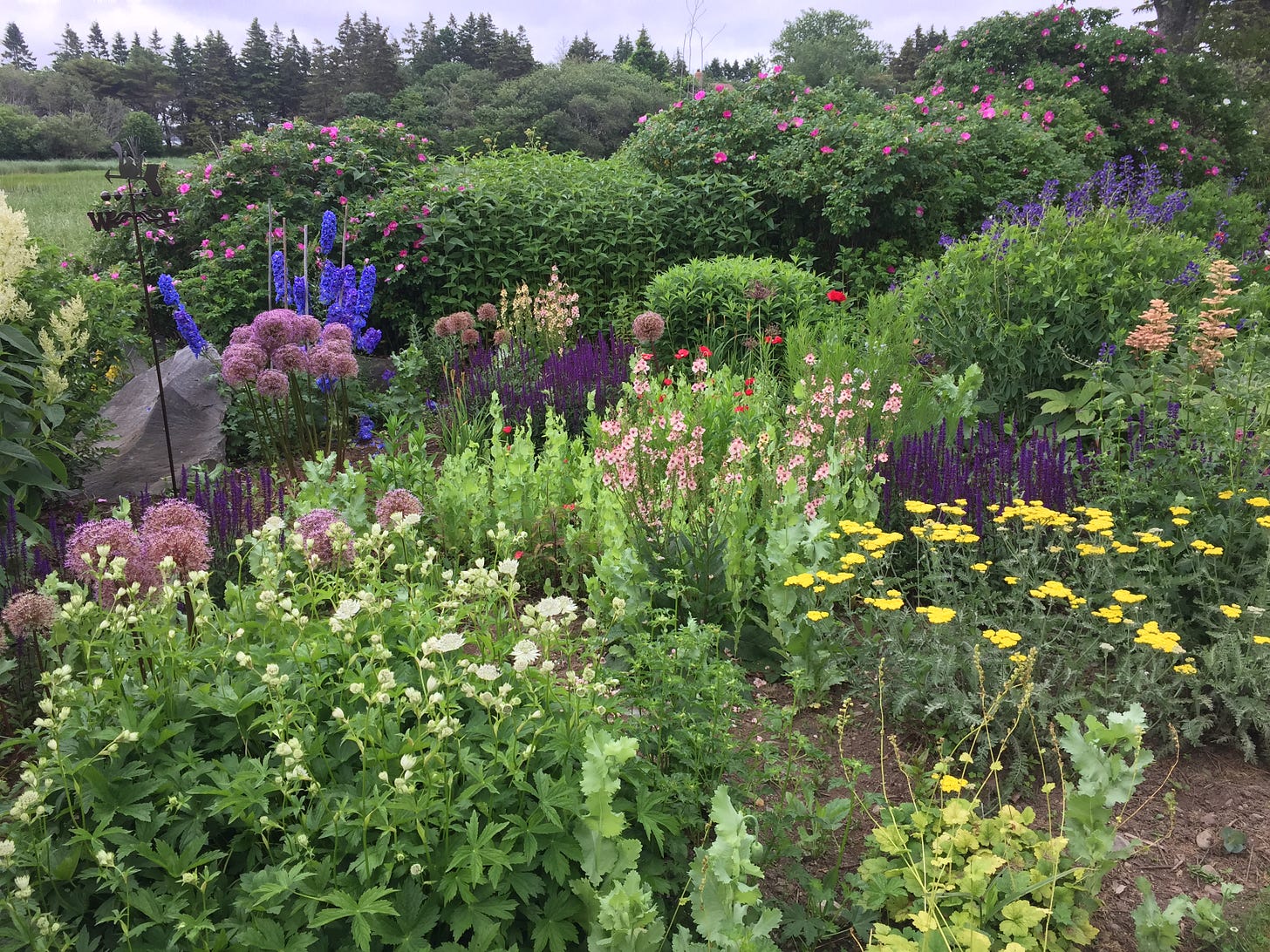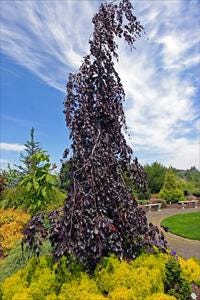This occasional newsletter looks at issues and events from the endgame point of view. The endgame is a chess concept. In the endgame only a handful of pieces are left on the board. Few moves remain. Victory or defeat is close. Options are limited and diminishing.
Toronto, May 14, 2023
The Constant Gardener
Is there room for a long game when you’re in the endgame?
If you’re in the endgame you don’t have much time. But some things take time, a lot of time. Gardening is a good example. There’s no quick or easy payoff. It takes years, decades, to create a garden. And the work is never done. A garden is constantly being reinvented, and reinventing itself, birthing and changing and dying, offering the gardener success, surprises, and failure. That’s part of a garden’s glory. Gardening is a long and unpredictable game, that’s for sure.
Many famous gardens prove the point. Take Great Dixter, for example, in East Sussex in England. The original garden was started in 1910 by Nathaniel Lloyd. His son Christopher, known as Christo, ran it starting after World War Two until he died in 2006. Christo was always experimenting, replanting and enriching the garden. (See the biography of Christo by Stephen Anderton, Christopher Lloyd: His Life at Great Dixter.) Great Dixter is still going strong over a century after it was founded, changing, and gaining stature and interest, all the time.
Here’s a picture of part of our own modest garden in Nova Scotia:
If you’re interested in how it developed (over about twenty years) go here. There’s a lot of work still to be done in the Nova Scotia garden. A few years ago, with Lynn Farrell, talented gardener and photographer, we did a blog on one year in the life of this garden. You can see the blog here.
Is there room for gardening if you’re in the endgame? Why would you bother? Why would an octogenarian plant a tree? “Blessed are those who plant trees under whose shade they will never sit” says the proverb, variously attributed, in different versions, to Cicero, Rabindranath Tagore, Warren Buffet (unlikely), and many others. That’s one answer to the question, the recognition that an individual life is part of a much bigger and more consequential picture.
More importantly, not to dream about the future, not to plan beyond your allotted years, not to create until the end, not to strive for beauty until the very last moment, is to lead a drab and defeated life.
A few years ago, I decided I wanted a weeping beech and ordered one from the local nursery. One day an elderly man came with it in the back of an ancient pickup truck. He dug a hole and carefully planted the tree. It was hard work and took a while. The sun was hot. Finally, he finished, tired and sweaty. He stood back and admired his work. The weeping beech stood about six feet tall. “In a hundred years that’ll be one hell of a tree,” he told me with satisfaction. He understood.
Not everybody understands. When I was a Bay Street lawyer, I was invited one summer’s day to a client’s impressive house, in one of the best parts of town, to celebrate the closing of a big transaction. He’d moved into this house a few days before. I looked out of a window at the back and saw a huge and splendid herbaceous border in the backyard. “That’s beautiful,” I said. “The previous owner must have had quite a green thumb.” “Oh no,” said my client. “All he left behind was weeds. I had all those plants put in last weekend. They did a great job, don’t you think? It only took a day, but cost me a bundle.”






I just planted two butternuts which are bare sticks. It will take 10 years for them to be saplings. Unfortunately one of them won’t achieve even that. I ran over it with the riding mower.
My attachment for gardening, trees and nature seems to be growing as I get older. Perhaps when we garden or plant trees it gives us the opportunity to be part of something bigger than ourselves? It is not teally an end but a beginning?